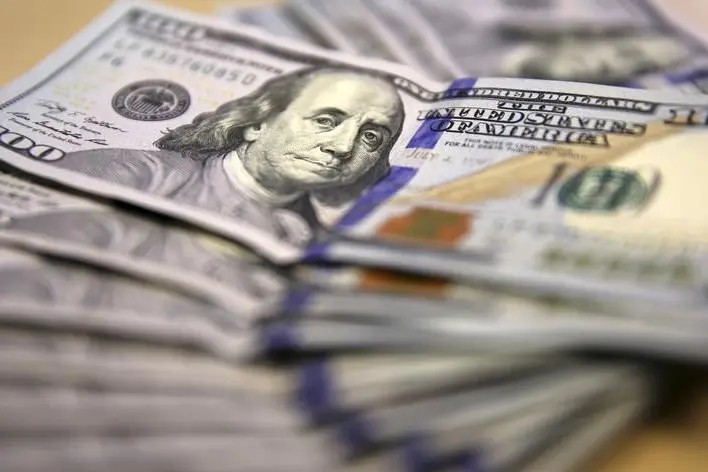PHOTO
SINGAPORE - The U.S. dollar was on the defensive on Tuesday after weak retail sales data, with the safe-haven yen and Swiss franc benefiting from tensions between the West and Saudi Arabia and amid a standoff on Brexit talks over Britain's plan to exit the EU.
The dollar, also sought during times of markets stress, struggled despite weaker equities and broader risk-off sentiment in part as U.S. data overnight suggested consumers were reluctant to spend and as U.S. bond yields paused from recent spikes.
Retail sales rose a slower-than-expected 0.1 percent last month, and followed on from last week's inflation report for September which showed only modest uptick in U.S. consumer prices.
Michael McCarthy, chief market Strategist in Sydney, said the Japanese yen was the biggest winner in overnight trade. "Geopolitical factors may remain the key factor behind currency markets in the short run," he said.
The Japanese yen was changing hands at 111.84 on the dollar, near its one-month high of 111.61 hit on Monday. The Swiss Franc traded relatively unchanged versus the dollar at 0.9868, after tacking on 0.45 percent overnight.
Both currencies have attracted buyers amid tensions between the Western powers and Saudi Arabia, which has been under pressure since a prominent Saudi journalist Jamal Khashoggi, a critic of Riyadh and a U.S. resident, disappeared on Oct. 2 after visiting the Saudi consulate in Istanbul.
An impasse over Brexit talks and global trade tensions have added to the cocktail of negative factors that battered global stocks.
"Even when U.S. equities were collapsing and there was a risk-off mood in the global markets, the dollar did not trade strong as one would expect," said Ray Attrill, head of currency strategy at NAB.
"The equity correction is not done in my view yet. Dollar is behaving in an asymmetric manner - good news is not so good and bad news is much worse in terms of price action for the dollar," added Attrill.
U.S. Treasury yields remained elevated but off highs hit last week. The benchmark U.S. 10 year yields consolidated at 3.15 percent, having hit a seven-year high of 3.26 percent on Oct. 9.
The dollar index, a gauge of its value against six major peers, was almost steady at 95.06 from late New York trade, but off an intraday high of 95.37 on Monday.
The sterling changed hands at 1.3155 as investors wait for more clarity over the post-Brexit status of Britain's land border with Ireland.
The euro gained marginally to 1.1581, well off a seven-week low of 1.1429 hit last Tuesday.
Chancellor Angela Merkel's Bavarian sister party said on Monday it would back political stability in Berlin after suffering big losses in a regional election that their far-right foes hailed as "an earthquake" that would rock the coalition government.
The New Zealand dollar advanced 0.4 percent versus the dollar to trade at 0.6577 as domestic inflation picked up faster than expected in the third quarter.
The Australian dollar edged up 0.1 percent versus its U.S. counterpart to 0.7137, as minutes of the Reserve Bank of Australia's October policy meeting showed policy makers remained upbeat on the economic outlook overall. (Reporting by Vatsal Srivastava Editing by Shri Navaratnam)
© Reuters News 2018





















